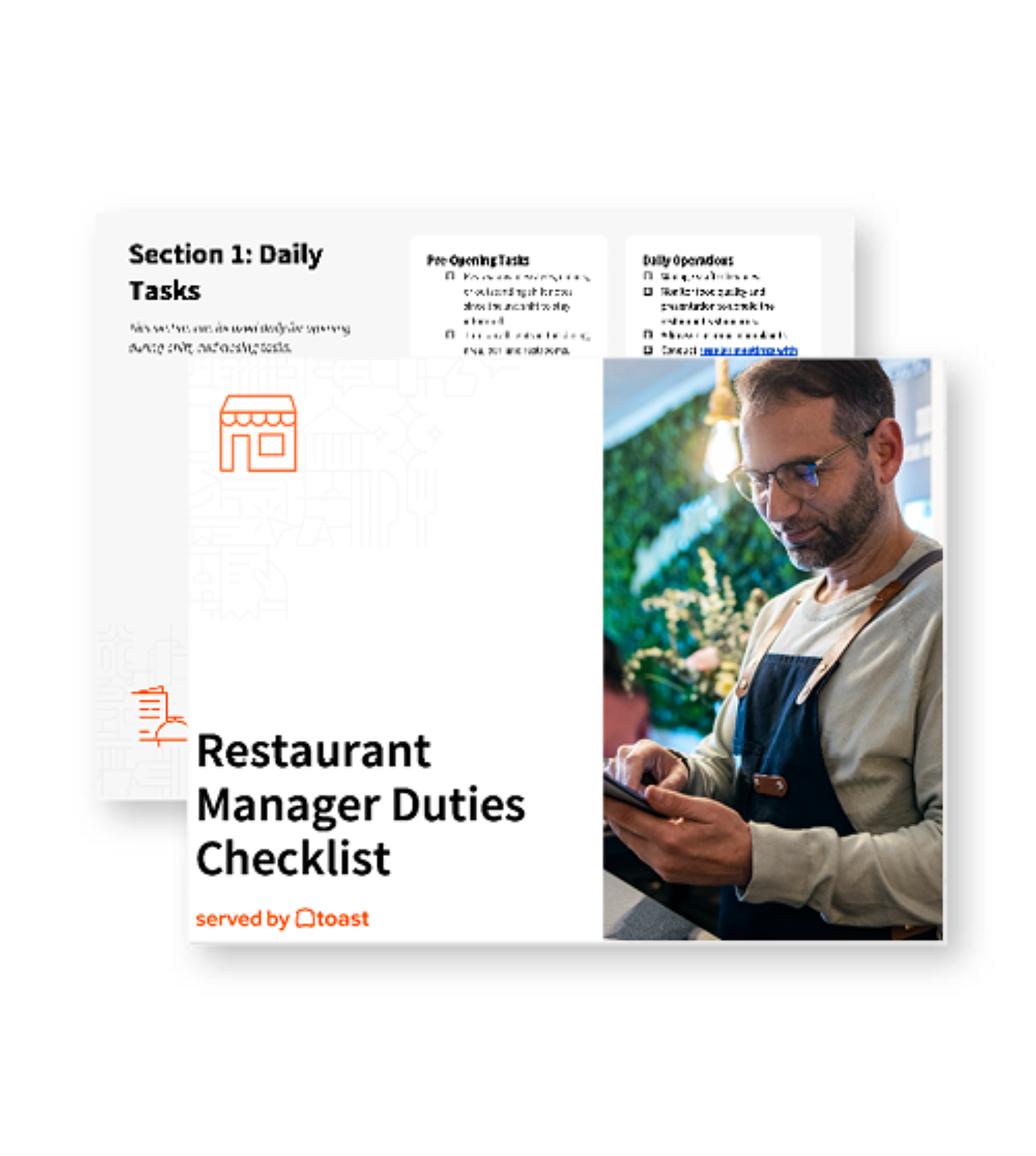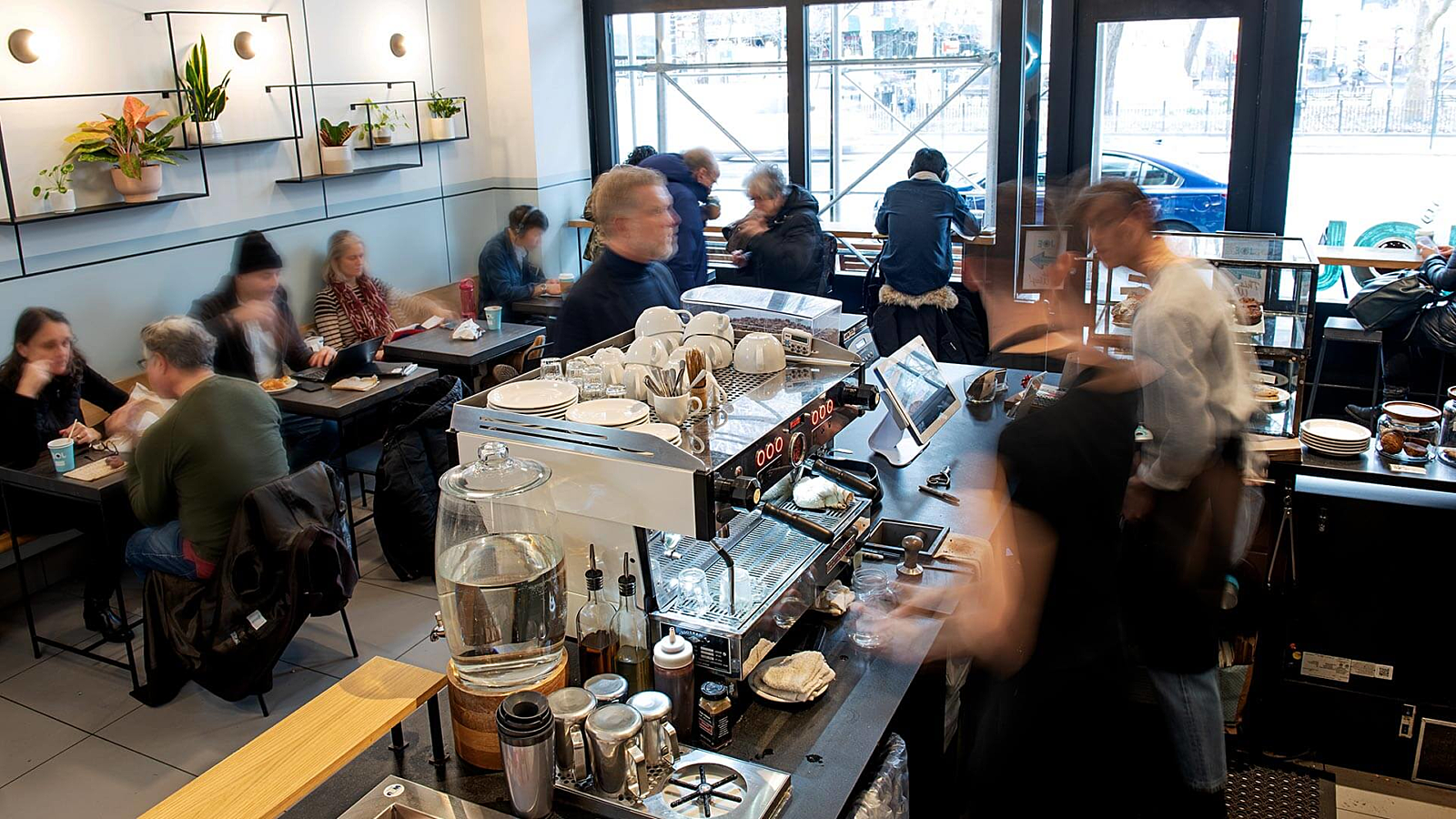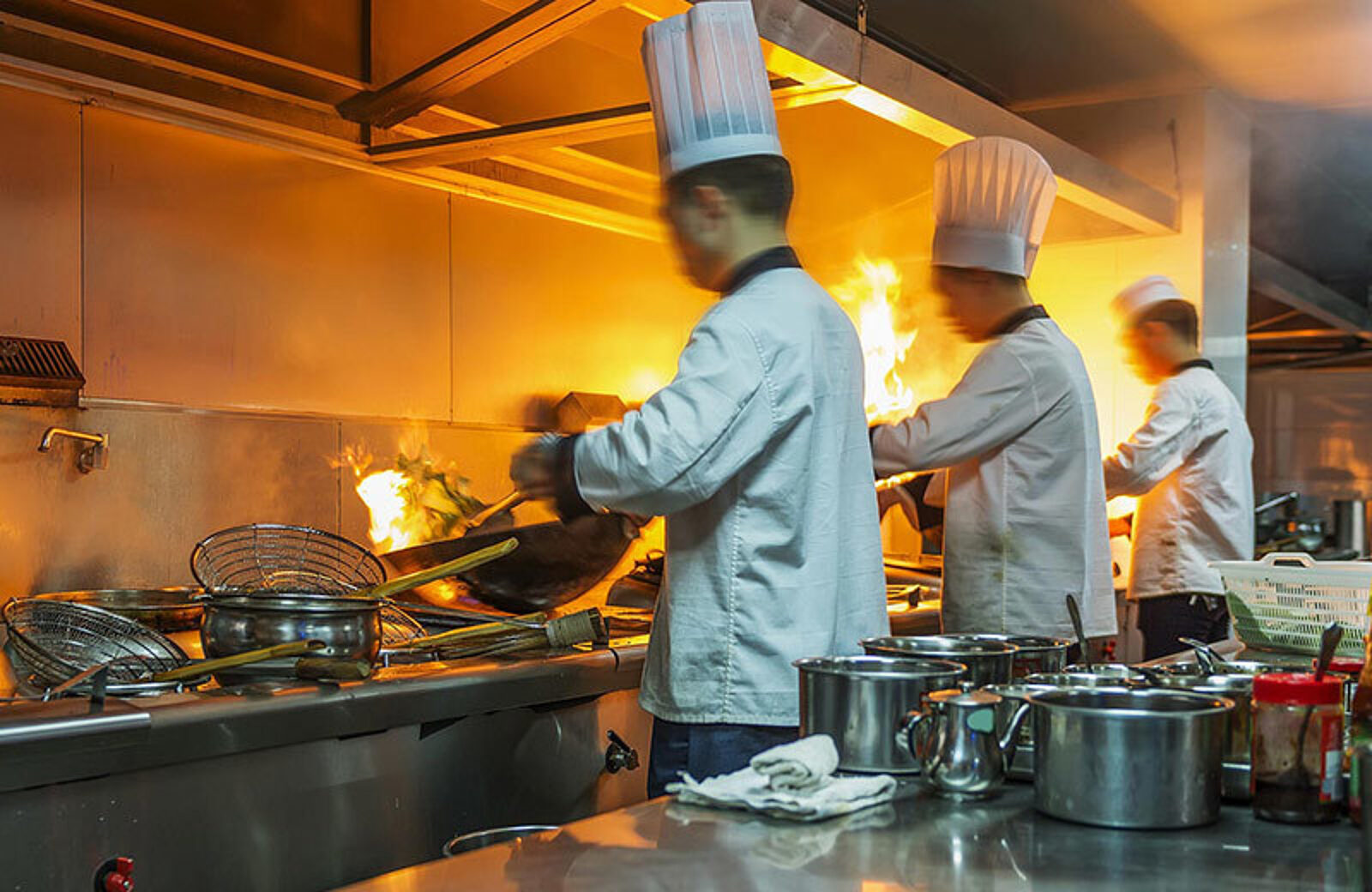
How to Become A Restaurant Manager
Is a career in hospitality calling your name? Here's what to do to get to the leadership level.

Halona BlackAuthor


Restaurant Manager Duties Checklist
Use this free checklist to help streamline daily tasks, make sure weekly duties get completed, and ensure your manager stays organized.
Get free downloadAre you looking for a leadership position within the hospitality industry, that requires a great love for food, customer service, and bringing out the best in your staff? If yes, then you may be interested in becoming the manager of a restaurant. According to the Bureau of Labor Statistics, there is no better time than right now to start getting prepared. Why? Because the number of available restaurant manager positions is expected to grow as much as 11% into the year 2028. The 2019 State of the Restaurant Industry Report predicts that this growth will happen because the definition of what makes up a restaurant is evolving. Simply put, more people are eating food at home that was prepared elsewhere. Think high-tech commissary kitchens for delivery-only brands and special third-party apps that quickly deliver restaurant meals to homes, work, and anywhere else. All of this means more opportunities for you in both traditional and nontraditional restaurant management positions.
In this piece about how to become a restaurant manager, we’ll walk you through:
The different manager positions that exist in a restaurant, including General Manager, Restaurant Manager, Kitchen Manager, and Bar Manager
The job description and duties of the different types of managers you see in a restaurant
The skills needed to become a General Manager, Restaurant Manager, Kitchen Manager, or Bar Manager
Courses, classes, and resources available to kickstart your journey to restaurant management
How to Become a General Manager of a Restaurant
Restaurant general managers exist in a number of food-service establishments, including restaurants, bars, hotels, corporate food service, school cafeterias, and other places where food is being prepared for sale. Many come to the position having worked in either or both of the front and back of the house, at one or more busy restaurants.
Restaurant General Manager Job Description
A restaurant general manager, or GM, is in charge of all aspects involved in running the restaurant, including food and beverage service, hiring and managing staff, operational tasks and inventory management, tracking metrics and KPI’s, and more.
The GM is the most senior manager in a restaurant, sitting above the restaurant manager, kitchen manager, and bar manager; in fact, they often times manage these more junior level roles. The major difference between the GM and the restaurant manager is that the GM works on higher level aspects of the business, including monitoring payroll records, overseeing the yearly budget, and handling human resource issues. The restaurant manager works more closely with managing people.
You can find the general manager of a restaurant working in three main areas: operational management, staff management, and customer service.
Operations management involves ordering and tracking inventory, general supplies, and equipment for the kitchen, and overseeing the general upkeep of the front and back of house. This can include maintaining relationships with vendors and distributors to ensure that the quality of deliveries is consistent. It can also include ensuring that the grounds are cleaned and maintained.
When it comes to staff management, general managers are typically very hands-on in the hiring process, and less so in the training and onboarding process, though this will vary from restaurant to restaurant. Where a restaurant manager is the go-to person for staff members with questions in the middle of a shift, a GM manages the managers. A GM will be involved in getting a new restaurant staff member set up for their first shift.
Customer service and relationship management is the third key factor to the creation of a successful restaurant. The general manager is responsible for cultivating and maintaining the dining experience and overall atmosphere that guests expect. Staying in touch with why your guests continue to dine with you is important to being an effective general manager. All decisions you make as a general manager are made in support of creating a happy and consistent customer experience.
What are some other important duties of a general manager? An effective restaurant GM is expected to be a keen problem solver, and provide oversight of both the front and back of the house. Leading the front of the house may include ensuring that guests are happy with their dining experience, tracking sales performance, assisting FOH staff with issues or questions, and updating them about changes to the menu or inventory availability. Back of the house management may include hiring and training cooks and wait staff, creating schedules, managing and ordering inventory and ingredients, and ensuring compliance with health and safety regulations.
Job Description Template
Write great restaurant job descriptions with this job description template, a customizable Word doc that outlines responsibilities, requirements, and more.

Restaurant General Manager Salary
According to Payscale.com, general managers of restaurants can expect an average salary of $49,093, or an hourly rate of $14.33. An entry-level restaurant general manager with less than one year of experience can expect to be paid around $39,772 with the addition of tips, bonuses, and/or overtime pay.
Restaurant General Manager Duties
The daily duties of a restaurant general manager can change from day to day. Here is some of what you can expect to do as the general manager of a restaurant.
Come in early to turn on lights and equipment
Sign paychecks
Order food and supply inventory
Void items from customer bills
Cash out at the end of the shift
Implementing advertising and marketing campaigns
Anticipate the needs of restaurant patrons
Provide direction to employees regarding operational procedures
Make hiring and firing decisions
Ensure that employees follow sanitary food handling practices in the kitchen and eating areas
Restaurant General Manager Skills
If you’re interested in becoming a restaurant general manager, here are eight skills you should come to the table with.
A passion for food and hospitality
A proven ability to lead
Strong communication skills
Strong problem-solving skills
Strong attention to detail
Able to work well under pressure
Strong mediation skills to solve problems between staff or staff and guests
Able to self-motivate
What Does a Restaurant Manager Do?
A restaurant manager works under the leadership of the restaurant’s general manager. Restaurant managers are the face of the dining establishment and usually intervene on behalf of the customer to ensure that they are being serviced with great food and a smile. A good restaurant manager also is responsible for managing their staff. This may include duties like creating weekly work schedules and monitoring on-the-job performance. They may also greet customers, to ensure that their overall dining experience is satisfactory. In essence, a restaurant manager is responsible for ensuring that there are no obstacles that disturb meal service.
Restaurant Manager Job Description
What a restaurant manager does on a day to day basis may differ depending upon the type of establishment, however there are some duties that will never change. This can include oversight of food preparation, maintaining health and safety records for inspection, and staying on top of employee and customer service issues.
A restaurant manager is responsible for overseeing and managing staff during meal service. They are always out on the floor in the middle of a shift, acting as a resource for their staff. They answer questions, provide advice and coaching to staff members, help when obstacles arise, communicate important information or updates to the staff, and check in regularly with guests about their experience. Restaurant managers are typically responsible for onboarding and training new employees, running pre-shift meetings, and keeping morale high during the middle of a rush and throughout the shift.
Restaurant Manager Salary
Wondering how much restaurant managers make? According to Payscale.com, the average salary for a restaurant manager is $45,897.
Bar Manager Duties Checklist
Use this free checklist to help streamline daily tasks, make sure weekly duties get completed, and ensure your bar manager stays organized.

Restaurant Manager Duties
Does being a restaurant manager sound like something you’d like to do? If you are already working in the restaurant industry and aspire to become a manager, you can look for opportunities to fulfill some of these duties where you already are.
Recruiting, training, and supervising staff
Ensure that the cash register is prepared to properly bill customers
Provide inventory
Manage payment of staff
Plan menus for special events or daily specials
Ensure staff complies with kitchen health and safety guidelines.
Restaurant marketing and promotion via social media and other avenues
Restaurant Manager Skills
So now you know the basics of what’s involved with being a restaurant manager, let’s talk about skills. What skills do you have to develop to make it as a restaurant manager?
Superior customer service skills
Be flexible and able to multitask
Communicate with vendors, diners, and employees
Pay great attention to detail
Create a team atmosphere
Love working in a fast-paced environment
Be goal-oriented
Restaurant Manager Courses
The vast majority of restaurant managers learn vital tricks and tactics while on the job. However, there are courses and classes available to those interested in improving their skills while off the clock. The National Restaurant Association’s ServSuccess program has a career pathway for Certified Restaurant Managers. The course is designed by restaurant industry experts and focuses on the major management skills a restaurant manager needs in order to be successful. These skills include financial management, purchasing and controlling costs, recruiting, hiring, and training great staff, monitoring employee performance, managing safety and security of employees and guests, and marketing.
If you currently work in an entry-level position in the restaurant industry, or are planning on making a career shift, you’ll find bite-sized online hospitality training at Typsy.
And be sure to explore Toast’s Resource Center where you can find resources that help with training staff, handling payroll, learning how to respond to online restaurant reviews, and a lot more.
If you are looking for a more formal course or training program, you'll want to research colleges, universities, or culinary programs in your area that offer courses in hospitality management.
How to Be a Kitchen Manager
A great kitchen manager ideally has experience in the culinary arts, coupled with an ability to lead the team in the kitchen. This is the manager that holds most of the responsibility for the back of the house.
Kitchen Manager Job Description
So what does a kitchen manager do? As the title implies, a kitchen manager oversees a restaurant’s kitchen, communicating directly with the GM about how the back of house is performing, and sharing problems that the line, dish pit, and prep cooks are facing. They act as the kitchen’s mouthpiece, communicating important menu updates to the other managers and staff. They also play an integral role in inventory purchasing decisions, kitchen equipment management, and menu development. Responsibilities can include maintaining the workflow of the kitchen, and managing food storage, food prep, and the back of house staff. They ensure that there is consistency in the quality and size of servings, that refrigerator and freezer stock remains organized, that food and drink supplies are ordered and kitchen equipment is maintained, that health and safety standards are adhered to, and that kitchen and dining areas are clean and up to code.
Kitchen Manager Salary
According to Payscale.com, the average hourly rate for a kitchen manager is $13.73. Differences in pay can depend upon experience, location, and opportunities for bonuses and tips.
Kitchen Manager Duties
If you love the high-pressure environment of working in the kitchen, then being a kitchen manager may be for you. Here is a short list of what kitchen managers do on a day-to-day basis.
Inventory ingredients that are in high demand
Order items and ensure they are located in the proper place in the kitchen
Supervise kitchen employees
Ensure that food is properly prepared in a consistent manner
Make changes to the menu as needed
Schedule kitchen staff
Oversee cleanliness of the kitchen
Maintain weekly and monthly cost reports
Kitchen Manager Skills
The kitchen can be a creative environment, but you also have to ensure that your staff is safe and well-trained. Here are some of the skills you’ll need to be a successful kitchen manager.
Menu development
Create delicious food that is consistent
Ensure the safety of kitchen staff
Train employees on the proper use of kitchen equipment
Monitor food and labor costs
Create fun and beautiful dishes that delight the customer
Solve problems
Enjoy the chaos of the kitchen
Be an example of solid leadership
Kitchen Manager Resume
What does a restaurant owner, operator, or GM want to see on their next kitchen manager’s resume?
Strong experience working in the back of house
Proven leadership experience
A passion for food, as displayed by their career in back of house, courses they have completed, or certifications they have earned
References from previous back of house roles, experience as a cook as well as other positions of leadership elsewhere in a restaurant environment
How to Be a Bar Manager
Before becoming a bar manager, it’s important to know that the position involves long hours of standing on your feet and interacting with the public. Furthermore, the bar manager oversees the entire bar program by managing the bar staff, developing the drink list, ordering and tracking inventory, and more.
Bar Manager Job Description
Bars are fun but busy, and demand a high level of leadership to ensure that guests and staff are behaving responsibly. Managers are tasked with maintaining revenue targets and creating a consistent customer service experience, as well as overseeing the hiring, operations, and logistics of the bar. They’re involved with scheduling employees and managing customer complaints, and some have the added responsibility of taking care of the liquor licensing and following local liquor regulations.
Bar Manager Salary
The average hourly salary for a bar manager is $11.69, according to Payscale.com.
Bar Manager Duties
Bar managers play a key role in ensuring that all patrons are safe, secure and still able to have a great time. If you are able to demonstrate that you have done any of these duties in past positions, regardless of the industry, then you will be in good shape for going after the bar manager position.
Maintain the liquor license
Negotiate contracts with vendors and alcohol distributors
Maintain inventory and ordering supplies
Manage budgets
Maintain a fun and safe atmosphere for guests and bartenders
Bar Manager Skills
Every bar has its own personality and client type. As a result, the skills you bring to the job may vary from one establishment to another. Here are some standard skills you can expect to use on the job.
Create an atmosphere of teamwork
Ensure that guests are getting orders in a timely manner
Communicate well with staff and customers
Be comfortable working with cash and have high numeracy skills
Be a problem solver
If you can thrive in a chaotic atmosphere, have a knack for hospitality, a passion for food and beverage, and describe yourself as a master multi-tasker, then it’s worth taking the time to explore the managerial opportunities in the restaurant industry.
Start by deciding which area of the restaurant is most interesting to you. Are you a cook who is ready to spread your wings and try out managing a team? Do you know the ins and outs of just about any restaurant and you’re ready to become the GM?
Now is the time to make a 5-year career plan. What courses do you need to take, if any? What experiences can you gain right now that are applicable to the position you want in the restaurant industry? Take the time to pinpoint where your skills and experience can best be used and move from there.
Related Restaurant Resources
Is this article helpful?
DISCLAIMER: This information is provided for general informational purposes only, and publication does not constitute an endorsement. Toast does not warrant the accuracy or completeness of any information, text, graphics, links, or other items contained within this content. Toast does not guarantee you will achieve any specific results if you follow any advice herein. It may be advisable for you to consult with a professional such as a lawyer, accountant, or business advisor for advice specific to your situation.
Read More
Subscribe to On the Line
Sign up to get industry intel, advice, tools, and honest takes from real people tackling their restaurants’ greatest challenges.



